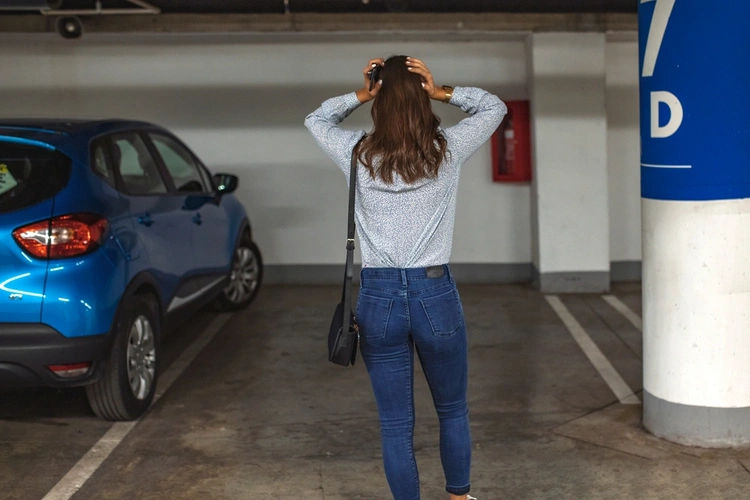How can I report a stolen car?
Nobody wants to think about potentially becoming a victim of crime, but car theft is a possibility and it’s always a good idea to know the steps you might need to take if the worst does happen. If you wake up and find that your car is missing from your driveway or has been taken from a public car park, consider contacting the police straightaway.
Unless you’re in danger or the thieves are still nearby, you can use the non-emergency number – 101 in the UK – rather than dialling 999. It’s sensible not to follow the perpetrators or look for the car yourself, instead making sure you stay safe and let the police do their job.
It might help if you have some important information handy, such as the car’s registration number, its make and model, colour, and any distinctive modifications that could be used to identify it. The police should give you a crime reference number and inform the DVLA that your car has been stolen.
How can I tell my insurance company my car was stolen?
After contacting the police, your insurance company might be your next phone call. Making a claim as soon as possible can increase your chances of being able to resolve the claim quickly. They’ll usually ask you several questions about your car and the circumstances surrounding its theft, and you’ll need to give them your crime reference number.
Insurers have three months from the date of contact to carry out an investigation and settle your claim. However, if they need further information or complications arise, it could take longer for you to receive your settlement. Depending on your policy, you’ll typically receive the market value of the car, which will be based on its age, mileage, and condition.
Should I contact the DVLA if my car is stolen?
While the police will inform the DVLA when your car is first reported stolen, it’ll be your responsibility to update them if or when you receive your insurance settlement. You can visit the DVLA website and complete a form online or send the relevant section of your V5C registration document in the post. You’ll also need to include a signed letter that states the make, model, and colour of your car, the name of your insurance company, when you were paid out, and how much you were paid. You can then send the rest of your V5C to your insurance company.
What is GAP insurance?
Gap insurance (otherwise known as guaranteed asset protection insurance) is a specific type of coverage that is closely related to car finance. Apart from classics and rare collectibles, all cars depreciate over time. In fact, the typical vehicle will lose up to 60% of its value in its first three years. Your standard car insurance will compensate you if your car is written off or stolen, but only to the tune of what the car is currently worth, which could be a lot less than you originally paid or financed. That means when you go to replace your car, there may be a gap between the amount you originally spent (or still owe to your finance provider) and the settlement figure you receive from your insurer. As its name suggests, gap insurance is designed to plug that gap.
Of course, terms and conditions apply. Different insurers have different exclusions, but typically, you’ll need to have fully comprehensive insurance, the policy will pay out only if your car is stolen or completely written off, and the compensation won’t cover any modifications you’ve made to the vehicle, such as upgraded wheels.
Gap insurance is optional. Whether it’s the right choice for you will depend on your personal circumstances. If you have car finance, it may be worth considering gap insurance for the period during which you are in negative equity. The risk to consider is that you will be required to continue making repayments on your loan if your standard insurance payment doesn’t cover the full amount of your stolen or written-off car. In this case, you could be left having to cover two finance payments each month – one for your old car and one for your new vehicle – or left without a car at all if your budget can’t stretch further. This could be particularly important if you have bought a nearly new vehicle that’s only two or three years old and is losing value rapidly.
How can I avoid buying a stolen car?
When choosing a used car, you may not know the vehicle’s full history and could be at risk of buying a stolen car.
The good news is that you can check a vehicle’s history online for a fee. All you need is the car’s registration number, and the service can then be used to check your vehicle’s status against the Police National Database and the Driver and Vehicles Standards Agency. You could also compare the car’s V5C documentation with its vehicle identification number (VIN) to check that they match.
If you believe that a car that’s currently listed for sale has been stolen, inform the police straightaway. If you think that you’ve already purchased a stolen vehicle, contact the police and then demand a full refund from the seller.
What if I buy a car with outstanding finance?
When buying a used car, especially from a private seller, you might not have access to all the information you need. Missing paperwork, misleading descriptions, and a pushy salesperson could prevent you from making a fully informed decision. So, what if you buy a car with outstanding finance on it?
The finance provider, as the car’s original owner, may attempt to recover the car or the outstanding finance on it. If you knew there was outstanding finance on the car when you bought it, you could be at risk of losing both the car and the money you paid for it, as you would not likely be considered to have gained ‘good title’ to the vehicle. In this case, you may want to consider seeking independent legal advice.
But if you buy a car without having been made aware that there is outstanding finance on it, you will likely be considered to have good title to the vehicle. This means you should be able to keep the car.
Get car finance up to £100,000
- Check your eligibility without impacting your credit score
- No deposit needed
- Rates from 9.9%* APR
*Representative example: Borrowing £6,500 over 5 years with a representative APR of 19.9%, an annual interest rate of 19.9% (Fixed) and a deposit of £0.00, the amount payable would be £166.07 per month, with a total cost of credit of £3,464.37 and a total amount payable of £9,964.37. Rates may differ as they are dependent on individual circumstances. Subject to status. We're a credit broker, not a lender.
Disclaimer: All information and links are correct at the time of publishing.






